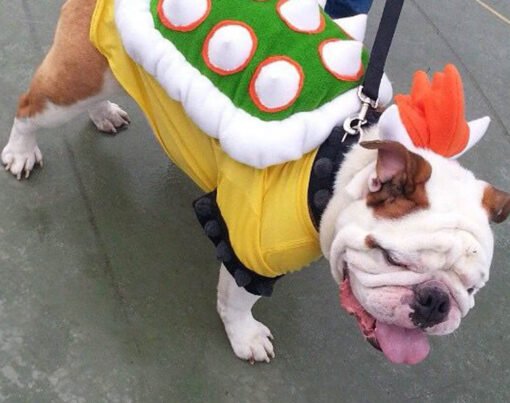It’s estimated that 62% of Americans own a pet. Owning an animal can be incredibly enriching for people. Pets can provide an unparalleled sense of animal love while introducing you to a fellow community of animal lovers. However, owning a pet is also a large responsibility.
It’s not enough to just keep your dog or cat alive, you want to make sure that they have a happy and healthy life. It’s easy to see how this can be overwhelming for new pet owners.
Often it can feel like one mistake could ruin the life of your animal. That’s why we made this guide. In it, we’ll go over some important animal care tips for new pet parents.
Table of Contents
1. Get All the Supplies You’ll Need
Before you even bring your new pet home you want to make sure that you have all the supplies you’ll need for them.
That way, you can focus on making them feel comfortable in their new environment. Some essential supplies include:
- Food
- Bowls for food and water
- Litter boxes for cats or doggy bags for dogs
- Toys
- Bed
- Kennels (if needed)
Some things you can wait to get until after your pet arrives, like cat towers or other toys. However, the more consistent you can be before your pet arrives, the better.
2. Make Sure Everything Is Safe for the Pet
You’ve likely heard the term child-proofing for a home. Well, you should also think about pet-proofing your new home too. That starts with making sure there are no toxic things around for your new dog or cat to get into.
Some animals are drawn to plants that might be toxic to them. Others might try to hop up on counters to get food that’s bad for them. If you have any plants or food that’s toxic to your pet we recommend getting rid of it or putting it in a safe place.
If you have a dog, you should make sure they have access to an enclosure where they can run and play. If you have a cat you should think about keeping them indoors so they stay away from potential predators.
3. Think About Their Diet
It can be tempting to provide your pet with the same dry food that they received at their shelter. While this is certainly the easiest option, it can cause health problems down the line.
Instead, consider diversifying their diet. This can take a bit of trial and error to see what they like. But often mixtures of cooked vegetables, meat, and fruit can be a great treat for your animal.
You don’t need to feed them this every day. However, at least twice a week can be a good way to keep your pet healthy.
4. Invest in Training
Training typically isn’t necessary for cats (unless you want them to do tricks). However, it’s vital for dogs. If you don’t invest in training early on, your dog will likely be loud and aggressive around both other dogs and people.
In some horrible cases, they can even injure other people or animals. The sooner you can train your dog, the easier it will be. You can either look up tips online or hire a professional trainer.
While it might be a pain, remember that it will be worth it down the road. It makes having guests over and taking your dog out much less stressful.
5. Give Them Plenty of Exercises
Both dogs and cats need exercise to be happy and healthy. For dogs that means taking them on daily walks. This can also be a great excuse for you to get out of the house.
Ideally, there will be a dog park near your house where they can run and play with other dogs. For cats, you want to exercise them with toys.
String toys, laser pointers, and more are great ways to get your cats moving around an indoor setting. Consider also getting cat towers so they have something to climb on.
6. Make Sure They’re Spayed or Neutered
Overpopulation is a big problem with dogs and cats. So unless you plan on using them for purebred breeding, you should make sure to spay or neuter them as soon as possible.
This doesn’t only prevent them from reproducing. It can also help prevent certain diseases down the line. For example, spaying can help prevent certain types of uterine cancers in both dogs and cats.
Similarly, neutering can help prevent prostate cancer in animals. So not only are you helping the overall animal population, but also your animal’s health.
7. Don’t Forget About Grooming
Grooming typically isn’t that important for cats (unless they have long hair). However, for many dogs, it’s quite important. Some new owners have the misconception that regular grooming is just for making the dog look good.
The reality is that for many breeds grooming is necessary for hygienic or health reasons. If their coat grows fast it can attract parasites or bacteria.
If you don’t have time to go to a groomer, consider hiring one that comes to you. There are plenty of professionals that use dog grooming vans to meet you where you’re at.
8. Find a Vet
You’ll want a regular vet that you can take your new pet in for check-ups and pet care. This is especially important for puppies or kittens. You want to make sure they’re developing correctly.
A vet can also find potential health complications early on, which can make dealing with the conditions much easier.
Find a good vet that’s as close to you as possible. That way, if your pet dislikes driving they don’t need to spend much time in the car to get to them.
Appreciate Learning Care Tips for New Pet Owners? Keep Exploring
We hope this guide helped new pet owners learn more about taking care of their animals. Remember that being a good pet owner is an ongoing journey. You can’t expect to know everything from day one.
Some things need to be gained through experience. As long as you aren’t hurting or abusing the animal, it’s okay to learn on the go.
Want more pet content? We have plenty of similar topics on our website that you can find right now.










